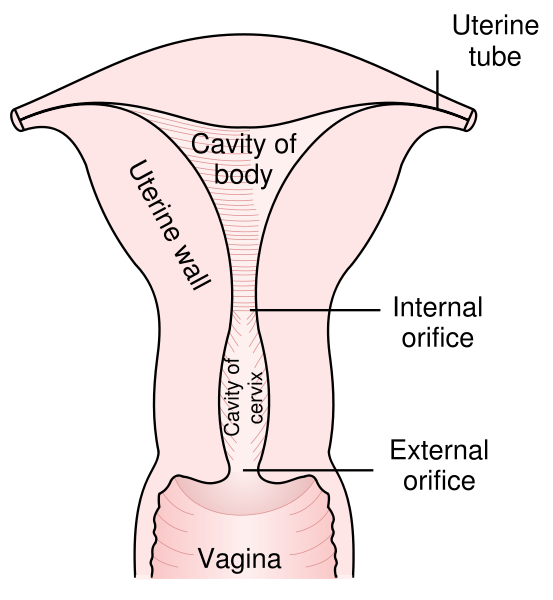Endometrial biopsy
| Endometrial biopsy | |
| MedlinePlus | 003917 |
|---|---|
Editor-In-Chief: C. Michael Gibson, M.S., M.D. [3]
Overview
A biopsy is a medical procedure used to remove a sample of tissue from the patient to be analyzed and diagnosed by a physician. An endometrial biopsy is the only procedure used to discover endometrial cancer. It is only given to high-risk patients. Endometrial cancer is diagnosed in about 39,000 women every year. [1]
Reasons for an Endometrial Biopsy
- Evaluation and Treatment of Infertility: If taken several days before menstruation, the biopsy can show the response to estrogen and progesterone to see if ovulation has occurred.
- Abnormal menstruation (Heavy bleeding, abnormal bleeding, absence of bleeding and bleeding after menopause). The biopsy will indicate a change in hormone levels or the presence of fibroids, polyps or other abnormal tissues.
- Hormone Replacement Therapy: The biopsy can determine the effects of the therapy to the patient’s reproductive system.
- Cancer: The biopsy may discover the presence of cancer cells in the endometrium or cervix.

Endometrial Biopsy Procedure
Generally, an endometrial biopsy follows this process: 1. The patient will be asked to undress and lie on the table with her feet in the stirrups for a pelvic examination. She may or may not be given localized anesthesia.
2. A speculum will be inserted into the vagina to spread the walls of the vagina apart to expose the cervix.The cervix will then be cleansed with an antiseptic solution.
3. A tenaculum, a type of forceps, will hold the cervix steady for the biopsy.
4. A pipelle, a thin tube also called a catheter, will be inserted into the uterus. A smaller tube (internal piston) inside the pipelle will be withdrawn to create suction. The pipelle be will rotated and moved in and out to collect small pieces of endometrial tissue. Cramping may occur.
5. The removed tissue will be place in a preservative.
6. The tissue will be sent to a laboratory, where it will be processed and tested. It will then be read microscopically by a pathologist who will determine the diagnosis.[2]
Alternative methods
Recently, the TruTest has been introduced as an alternative method of endometiral biopsy. Rather than using a suction tube, this method uses the Tao Brush to gently brush the lining of the uterus. Generally, this method has been found to be less painful than the traditional suction method.